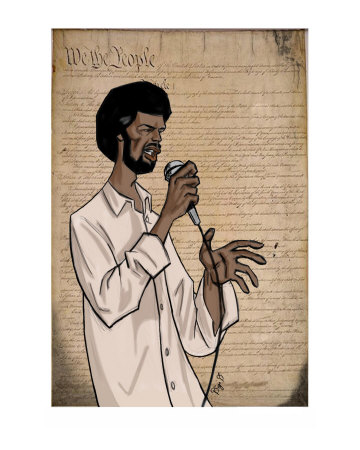So my group and I have just finished our project, and my, it is quite a relief. I would also like to compliment all the other groups on their work, and the entertainment they have provided. I look forward to seeing the final group’s perform on Monday.
The purpose of me writing this blog today is to explicate the script our group performed for class. I am sure all our group’s presentations will be on the test, so I hope this blog will be of some service to you in the not too distant future. I will also provide a copy of the script in this blog; feel free to read it. I am going to primarily focus on my role in the presentation—we broke our group down to individual areas of expertise—so I will not soil what my other group members might have to say on their subject. As you learned from the brief explanation provided at the end of class on Friday, my role was a teacher who was completely stuck in the literate tradition—and very stubborn about outside opinions. In the word of Chris of the laughing rats: “Freytag would be proud”. But to give some more depth to my character in perhaps the best way I know how, I shall attempt to round him in the form of literacy. My character is a man that has just recently graduated college, and is at bit of a loss in terms of finding an appropriate, and successful means of teaching his students. Other than the few (perhaps in poor taste) joke’s I made about bestseller authors(John Grishram, Dan Brown), Kane in his chapter on context—which I drew a character from—makes interesting observations on how myth is taught, particularly by none the wiser English teacher’s, in a poor way that stays completely removed from the human life world. There a few things that I tried directly to allude to from the text, but other things I incorporated in, from contrasts that had arisen out of the other books we had been reading. I noticed there was some confusion on what I was exactly doing while I was stroking the binding of a book. I was doing it in a supposedly erotic way; poking fun at what Dr Sexson has explained is an obsession of the literary tradition. Which brings me to a key point into what my character was supposed to represent, which is, the safety that many modern teachers find in textbook studies of myth—and I suppose this is supposed to be ironic, the book is erotic, yet we shun sexuality, which I made a point of doing when addressing the students.
Anyway, the reason that this is an inaccurate way to study myth, is that often times these textbooks will only give poor explanations about the meaning of the myth, with no sympathy towards the culture, and many of the contextual elements that made myths powerful and provocative when the oral poet spoke them. Instead as Kane demonstrates on the Myth of Demeter and Persephone, and the vague understanding textbooks provide, “[that] if these essentialist sentimentalities about human nature were all that mythtelling were about, myths would deserve their bad name”—which is a consequence perhaps, mostly of teachers not having any ability to expound upon anything other than that which the textbook provides.
Another point I made about a teachers inadequacy on teaching myth was—teachers often have a very difficult time explaining truly what these myths are about, and they will often rely on the books graphics, as a means of supplementing any deeper meaning. This is why when I was sitting down at the desk in the middle of the room, rubbing an apple I said, “My…look at these pictures”.
What I also tried to emphasis in this presentation was the political correctness that Kane explains has drawn out much of the meaning of these de-contextualized myths. For example, the myth of Demeter and Persephone is about fertility, and the contact between city dwelling cultures and rural cultures. Yet much of this context is absent in the text versions of these myths. Kane, in his research actually found this, “According to the sources of this myth (none of this in the high school anthology), she knows the secrets of the marriage-bed, and blesses couples on their wedding night.” Instead of including vital information such as he has provided, these anthology’s usually settle on abstract concepts such as compromise (which I wrote on the board)—which Kane explains is completely of myth a that should in fact “echo the knowledge of the agricultural seasonal cycles of the Mediterranean”.
There is much more to this subject, and perhaps a bit more explanation into what my group did, but since it is Saturday, and I am a bit de-contextualized myself in the written word, I think I will go enjoy the rest of the day.
Saturday, April 18, 2009
Subscribe to:
Post Comments (Atom)

No comments:
Post a Comment